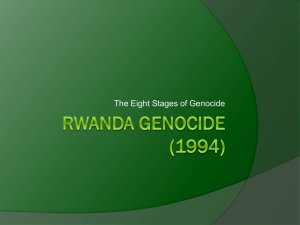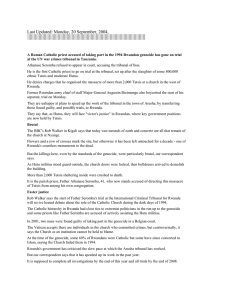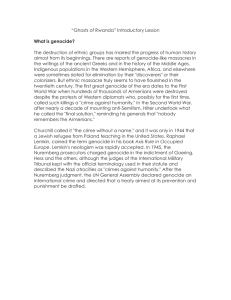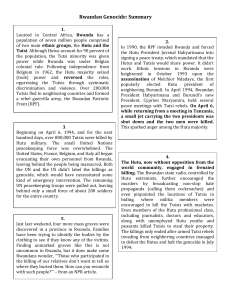w/s Hotel Rwanda
advertisement
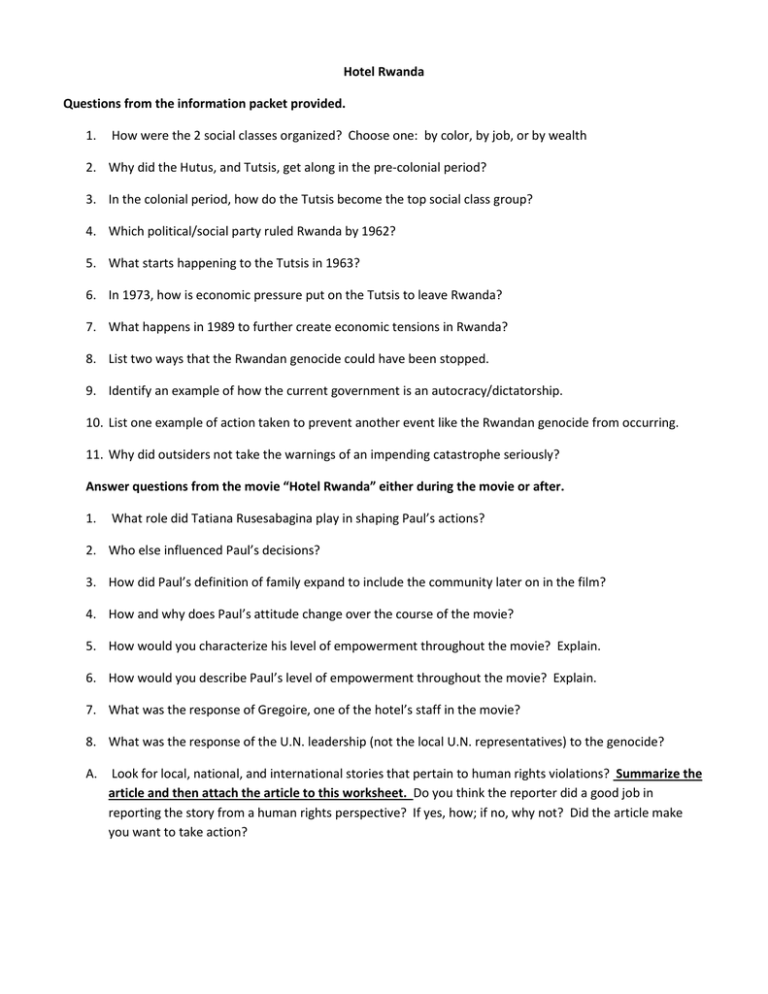
Hotel Rwanda Questions from the information packet provided. 1. How were the 2 social classes organized? Choose one: by color, by job, or by wealth 2. Why did the Hutus, and Tutsis, get along in the pre-colonial period? 3. In the colonial period, how do the Tutsis become the top social class group? 4. Which political/social party ruled Rwanda by 1962? 5. What starts happening to the Tutsis in 1963? 6. In 1973, how is economic pressure put on the Tutsis to leave Rwanda? 7. What happens in 1989 to further create economic tensions in Rwanda? 8. List two ways that the Rwandan genocide could have been stopped. 9. Identify an example of how the current government is an autocracy/dictatorship. 10. List one example of action taken to prevent another event like the Rwandan genocide from occurring. 11. Why did outsiders not take the warnings of an impending catastrophe seriously? Answer questions from the movie “Hotel Rwanda” either during the movie or after. 1. What role did Tatiana Rusesabagina play in shaping Paul’s actions? 2. Who else influenced Paul’s decisions? 3. How did Paul’s definition of family expand to include the community later on in the film? 4. How and why does Paul’s attitude change over the course of the movie? 5. How would you characterize his level of empowerment throughout the movie? Explain. 6. How would you describe Paul’s level of empowerment throughout the movie? Explain. 7. What was the response of Gregoire, one of the hotel’s staff in the movie? 8. What was the response of the U.N. leadership (not the local U.N. representatives) to the genocide? A. Look for local, national, and international stories that pertain to human rights violations? Summarize the article and then attach the article to this worksheet. Do you think the reporter did a good job in reporting the story from a human rights perspective? If yes, how; if no, why not? Did the article make you want to take action?

